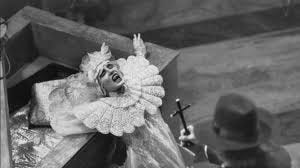Lucy Westenra - The Bram Stoker's Dracula's Cosmopolitan Daughter of Modernity
Mouthful ain't it?
To say that Lucy Westenra the decoy female lead of Dracula inspires feelings would be about the most obvious thing to say in the world. From her sexy comedic appearance in Dracula Dead and Loving It, to her more dramatic portrayals such as in the first Universal and Hammer Dracula movies, Lucy is a character who appears again and again throughout the hi…



